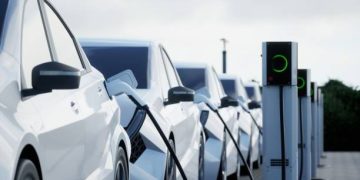Kenya is set to implement an e-Mobility policy by the end of the year, which will include a ban on the importation of certain fossil fuel vehicles. Michael Muchiri, head of the National Electric Mobility Taskforce at the Ministry of Transport, indicated that this policy will mark a significant step as the country gradually phases out combustion vehicles. vMuchiri noted that state entities like Kenya Power and KenGen have already reduced their fossil fuel vehicle imports. The forthcoming policy, expected to be finalized in December, will see these entities lead the shift toward e-mobility as infrastructure for electric vehicles (EVs) expands.
The draft policy aims to address key challenges in transitioning to a clean transport system, including developing an integrated approach to promote e-mobility, encouraging local EV manufacturing and assembly, and improving e-mobility infrastructure. It also seeks to enhance technical capacity and skills across the e-mobility value chain, provide better incentives for EV adoption, and support socio-economic measures to boost EV use.v However, Muchiri acknowledged the hurdles ahead, such as the need for extensive infrastructure development—including charging stations and grid upgrades—alongside incentives to encourage private investment. Financial constraints, technological integration, and public awareness are also identified as significant challenges.
Currently, Kenya’s transport sector relies heavily on fossil fuels, consuming about 72% of the petroleum products imported into the country. The sector is a major contributor to greenhouse gas emissions, which are projected to rise due to population growth and industrialization. In 2020, Kenya committed to reducing emissions by 3% by 2030 in its Nationally Determined Contribution (NDC) to the UN Framework Convention on Climate Change (UNFCCC). The National Climate Change Action Plan (NCCAP) 2018-2022 and its successor 2023-2027 highlight the adoption of electric vehicles as a key climate action. The National Energy Efficiency and Conservation Strategy (2020) aims for 5% of all registered vehicles to be electric by 2025.
Kenya anticipates importing approximately 20,000 electric vehicles annually to meet growing demand and reduce fossil fuel dependency. The Kenya Economic Report 2023 projects that this initiative will contribute to a significant increase in the number of electric vehicles in the country, including motor vehicles, motorbikes, and three-wheelers.
Get the best supply chain report news insights on The Supply Chain Report. Visit ADAMftd.com for free international trade tools.
#KenyaE-Mobility #ElectricVehicles #SustainableTransport #GreenEnergy #ClimateAction















